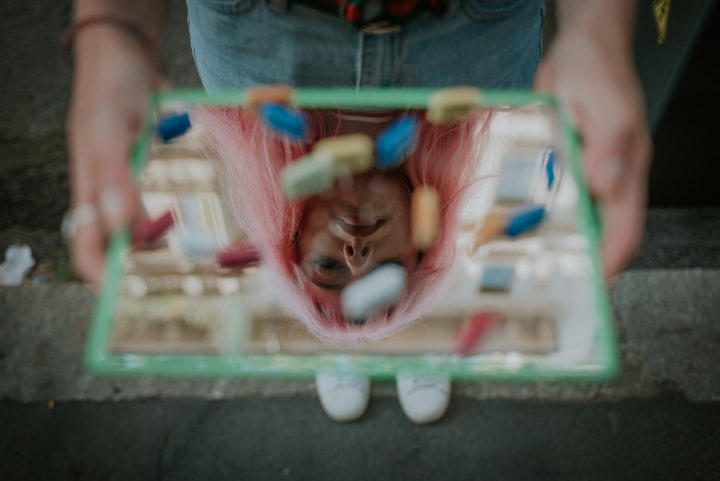What I learnt from Therapy
Advice from my time in treatment

Therapy and counselling can be life-changing. (There is a difference between the two: in basic terms therapy is a more focused, goal-based treatment while counselling is more of a discussion.) However, it isn't easy. You can be left on waiting lists for free sessions for ages and not everyone can afford to go private. When you do receive treatment, it’s not a quick fix. You don't walk into the therapist's room one person and walk out after the first session another. You have to put effort into working out your mind. With this being said the advice from a therapist or counsellor can be invaluable.
I have received some kind of counselling or therapy on and off since I was about fourteen. I am no professional but here are a few repeating patterns of advice I have received.
1. What if it was your friend
One way to change perspectives on a situation you are dealing with is to think about how you would advise a friend in the same situation. We are often overly harsh on ourselves and much nicer to our friends. If what you are struggling with is not something you would condemn your friend for, why are you beating yourself up about it? You are not worth any less. When suffering with conditions such as depression our thinking patterns change. We are more likely to fall into unhealthy thought patterns such as black and white thinking where we only see things as amazing or terrible with nothing in-between. Another example is mind reading, thinking we can tell what other people think of us without any evidence. These thought patterns only make your well-being worse so recognising them and challenging them is important.
2. Our response to stress and trauma is primordial
For some reason we as human beings haven’t developed from cave men as much as you might think. We still respond to stress and trauma as if we were being attacked by a mammoth despite them becoming extinct 10,000 years ago. Non-physical threats like exams still provoke the processes that would help us run away or attack physical threats. An accelerated heart-rate and other symptoms of a panic attack would have been helpful in escaping a tiger but not as much for succeeding academically. As well as running and fighting, there is a freeze response. It’s like acting dead or not drawing attention to yourself. It answers the 'why didn't you fight back?' question. Provoking the threat more can be dangerous. It could push them to hurt you more so freezing is a way of protecting yourself.
3. Scheduling
Routines can improve our mental health. The couple that I have been advised to maintain the most are things that make you happy and sleeping. There is a paradox that poor mental well-being can ruin your sleep and poor sleep can ruin your mental well-being. Whichever way round is affecting your sleep, having a sleep schedule can be helpful. This means going to sleep and waking up at the same time every day as well as preparing your mind for sleep every night. If you always do the same things before bed, your mind will pick up on this routine and be ready for sleep. It’s even better if you do things to aid sleep such as staying away from screens (easier said than done), having a relaxing bath and smelling soothing scents like lavender. Routine can improve your happiness levels as well as your sleep levels. When you are constantly stressed by life, it is important to do at least one thing a day that you enjoy. It can be one small thing like spending half an hour reading your favourite book or watching your favourite show. Do something to improve your mood just once a day.
There is so much more to be learnt in therapy. Simply the ability to divulge your feelings to someone unbiased who just wants to help you can be therapeutic in itself. If you think you can benefit from treatment, please reach out. It’s nothing to be ashamed of, in fact I love discussing therapists’ advice with my friends. Although a lot of what I have listed is easier said than done and I'm still working on it. Loving yourself is an ongoing process.
About the Creator
Rebecca Clark
Graduate in love with writing
If you like what I'm doing, check out my website and zine: thefreshfeminist.com
and check out my socials:
insta - @thefreshfeminist
twitter - @thefreshfem






Comments
There are no comments for this story
Be the first to respond and start the conversation.